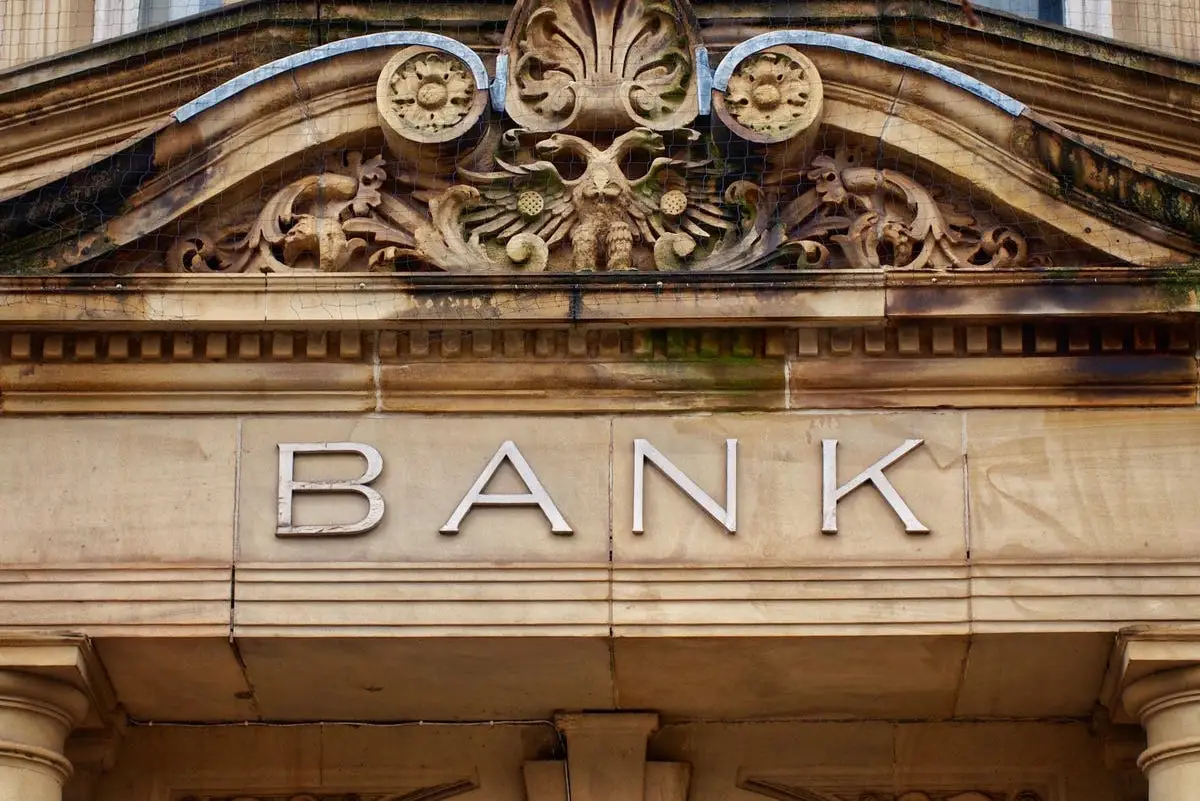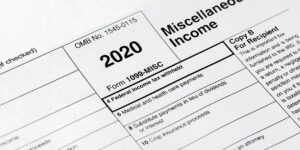Blog >> Bank Bonuses: A Complete Guide
By Kevin Zanes / April 11, 2025

Bank bonuses are one of the easiest ways to earn extra cash with very little effort.These offers come from banks and credit unions that want to attract new customers. By opening a new account and completing a few simple tasks, you can walk away with free money in just a few months.Banks offer these bonuses as part of their marketing strategy. They want your business and hope you will stick around once you open the account.To make it worth your time, many banks offer $100 to $500 or more – just for meeting basic requirements like setting up direct deposit or keeping a certain balance for a few weeks.Most people do not realize how simple it is to qualify for these offers.With a little planning, you can stack multiple bonuses in one year and easily earn over $1,000 in free money. Some seasoned users have earned $2,000 or more by rotating through the best deals.In this guide, you will learn how bank bonuses work, what to watch out for, and how to start earning your first bonus today.If you enjoy making smart money moves, this strategy can be one of the easiest wins in your financial toolkit. Bank bonuses offer one of the best returns on your time and effort.While most opportunities to earn extra money require long hours or special skills, bank bonuses are simple, fast, and available to almost everyone.The average bank bonus ranges from $100 to $300. Some offers go as high as $750 or more. Most of these bonuses take less than one hour of total effort across a few weeks.That includes opening the account, meeting the requirements, and closing the account if you choose not to keep it. When you break it down, that is an incredible hourly rate.Compared to credit card sign-up bonuses, bank bonuses are often overlooked.While credit cards may offer more value in travel points, they usually require spending thousands of dollars within a short period. Bank bonuses, on the other hand, often just need a direct deposit or a one-time balance transfer.There are no purchases required and no impact on your credit score in most cases.
Bank bonuses offer one of the best returns on your time and effort.While most opportunities to earn extra money require long hours or special skills, bank bonuses are simple, fast, and available to almost everyone.The average bank bonus ranges from $100 to $300. Some offers go as high as $750 or more. Most of these bonuses take less than one hour of total effort across a few weeks.That includes opening the account, meeting the requirements, and closing the account if you choose not to keep it. When you break it down, that is an incredible hourly rate.Compared to credit card sign-up bonuses, bank bonuses are often overlooked.While credit cards may offer more value in travel points, they usually require spending thousands of dollars within a short period. Bank bonuses, on the other hand, often just need a direct deposit or a one-time balance transfer.There are no purchases required and no impact on your credit score in most cases. Here is what a high-earning year of bank bonuses might look like:
Here is what a high-earning year of bank bonuses might look like: Start by applying for a new checking, savings, or business account with a bank offering a bonus. Make sure you meet the basic eligibility rules – most banks limit bonuses to new customers only.In some cases, you must not have had an account with that bank for the past 6 to 12 months.Apply online or in person and use the promo code if one is required. Some offers are only available through special links or during limited-time promotions.
Start by applying for a new checking, savings, or business account with a bank offering a bonus. Make sure you meet the basic eligibility rules – most banks limit bonuses to new customers only.In some cases, you must not have had an account with that bank for the past 6 to 12 months.Apply online or in person and use the promo code if one is required. Some offers are only available through special links or during limited-time promotions. Not all bank bonuses are the same. Banks offer different types of rewards depending on the account and the customer they are targeting.Knowing the differences can help you choose the offers that fit your goals and financial situation.
Not all bank bonuses are the same. Banks offer different types of rewards depending on the account and the customer they are targeting.Knowing the differences can help you choose the offers that fit your goals and financial situation. To get the most value from bank bonuses, you need a smart and organized approach. The more accounts you open, the more important it becomes to stay on top of the details.These tips will help you avoid mistakes, meet all requirements, and keep your earnings growing throughout the year.
To get the most value from bank bonuses, you need a smart and organized approach. The more accounts you open, the more important it becomes to stay on top of the details.These tips will help you avoid mistakes, meet all requirements, and keep your earnings growing throughout the year. Most banks use a soft pull when you open a checking or savings account, which does not affect your credit score. However, a few banks – especially for business accounts – may run a hard pull.Before you apply, search for data points to confirm how the bank checks your credit. If it is a hard pull, you may want to prioritize high-value bonuses or space them out to limit the impact.
Most banks use a soft pull when you open a checking or savings account, which does not affect your credit score. However, a few banks – especially for business accounts – may run a hard pull.Before you apply, search for data points to confirm how the bank checks your credit. If it is a hard pull, you may want to prioritize high-value bonuses or space them out to limit the impact. Many bank accounts charge a monthly maintenance fee unless you meet certain conditions. These fees can quickly add up and eat into your bonus.Always check how to waive the fee.Common ways include:
Many bank accounts charge a monthly maintenance fee unless you meet certain conditions. These fees can quickly add up and eat into your bonus.Always check how to waive the fee.Common ways include: Most bank bonuses are reported on a 1099-INT form. This is the same form banks use to report earned interest from savings or checking accounts.If you receive $10 or more in total interest from a bank during the year, they are required to send you a 1099-INT.In some cases – especially for business account bonuses or promotional rewards – you may receive a 1099-MISC instead. This form is used for other types of income, such as prizes or payments for services.Even if you do not receive a tax form, you are still responsible for reporting the bonus income. The IRS expects you to include it on your return regardless of whether the bank sends a form.
Most bank bonuses are reported on a 1099-INT form. This is the same form banks use to report earned interest from savings or checking accounts.If you receive $10 or more in total interest from a bank during the year, they are required to send you a 1099-INT.In some cases – especially for business account bonuses or promotional rewards – you may receive a 1099-MISC instead. This form is used for other types of income, such as prizes or payments for services.Even if you do not receive a tax form, you are still responsible for reporting the bonus income. The IRS expects you to include it on your return regardless of whether the bank sends a form.
Why Bank Bonuses Are Worth Your Time
 Bank bonuses offer one of the best returns on your time and effort.While most opportunities to earn extra money require long hours or special skills, bank bonuses are simple, fast, and available to almost everyone.The average bank bonus ranges from $100 to $300. Some offers go as high as $750 or more. Most of these bonuses take less than one hour of total effort across a few weeks.That includes opening the account, meeting the requirements, and closing the account if you choose not to keep it. When you break it down, that is an incredible hourly rate.Compared to credit card sign-up bonuses, bank bonuses are often overlooked.While credit cards may offer more value in travel points, they usually require spending thousands of dollars within a short period. Bank bonuses, on the other hand, often just need a direct deposit or a one-time balance transfer.There are no purchases required and no impact on your credit score in most cases.
Bank bonuses offer one of the best returns on your time and effort.While most opportunities to earn extra money require long hours or special skills, bank bonuses are simple, fast, and available to almost everyone.The average bank bonus ranges from $100 to $300. Some offers go as high as $750 or more. Most of these bonuses take less than one hour of total effort across a few weeks.That includes opening the account, meeting the requirements, and closing the account if you choose not to keep it. When you break it down, that is an incredible hourly rate.Compared to credit card sign-up bonuses, bank bonuses are often overlooked.While credit cards may offer more value in travel points, they usually require spending thousands of dollars within a short period. Bank bonuses, on the other hand, often just need a direct deposit or a one-time balance transfer.There are no purchases required and no impact on your credit score in most cases.Stacking Bank Bonuses For Bigger Payouts
One of the best parts of the bank bonus game is the ability to stack offers.Most bank promotions are limited to new customers, but you can qualify for multiple bonuses in a year by applying to different banks. Once you earn a bonus and meet the terms, you can move on to the next bank and repeat the process.By opening just one new account every other month, you could stack five or six bonuses a year. That could easily add up to $1,000 or more, especially if you target higher-paying offers.Some advanced users track over a dozen bonuses in a year and earn more than $2,000.Real-Life Example: A $2,000 Bonus Year
 Here is what a high-earning year of bank bonuses might look like:
Here is what a high-earning year of bank bonuses might look like:- Chase Total Checking: $300
- Citibank Savings: $400
- HSBC Premier Checking: $500
- PNC Virtual Wallet: $200
- TD Bank Beyond Checking: $300
- SoFi Checking & Savings: $250
How Bank Bonuses Work
Bank bonuses may seem too good to be true, but they are very real and surprisingly simple.To get the bonus, all you need to do is follow a few key steps.Understanding how the process works will help you avoid mistakes and earn your rewards faster.Step 1: Open A New Account
 Start by applying for a new checking, savings, or business account with a bank offering a bonus. Make sure you meet the basic eligibility rules – most banks limit bonuses to new customers only.In some cases, you must not have had an account with that bank for the past 6 to 12 months.Apply online or in person and use the promo code if one is required. Some offers are only available through special links or during limited-time promotions.
Start by applying for a new checking, savings, or business account with a bank offering a bonus. Make sure you meet the basic eligibility rules – most banks limit bonuses to new customers only.In some cases, you must not have had an account with that bank for the past 6 to 12 months.Apply online or in person and use the promo code if one is required. Some offers are only available through special links or during limited-time promotions.Step 2: Meet The Bonus Requirements
Once the account is open, you must complete specific tasks within a set period.These often include:- Direct Deposit: Most checking account bonuses require you to receive a direct deposit. This can come from payroll, Social Security, or even transfers from another bank (depending on what the bank counts as “qualifying”).
- Deposit Minimums: Savings accounts often require a large deposit – sometimes $10,000 or more – and you may need to keep that balance for 60 to 90 days.
- Transaction Activity: Some banks want you to make a certain number of debit card purchases, bill payments, or logins.
Step 3: Keep The Account Open
Most banks require you to keep the account open for a minimum period, usually 90 to 180 days.Closing the account too soon could cause the bank to take back the bonus or charge you an early closure fee.Note: To avoid monthly maintenance fees, you may also need to meet balance or activity requirements during this time.When To Expect Your Bonus
Bonuses usually post within 30 to 90 days after you meet all the requirements.Some banks pay out faster, while others take longer to review your account.If it has been more than 90 days and your bonus has not posted, you can call customer service to ask for a status update.Common Terms And Restrictions
Here are a few terms you will often see in the fine print:- “New customer only”
- You must not have had an account with the bank in the recent past.
- “Qualifying direct deposit”
- Not all deposits count – read the specific bank definition carefully.
- “Bonus will be revoked if closed early”
- Keep the account open until the minimum time has passed.
- “May receive 1099-INT”
- The bonus is considered interest income and may be taxable.
Types Of Bank Bonuses
 Not all bank bonuses are the same. Banks offer different types of rewards depending on the account and the customer they are targeting.Knowing the differences can help you choose the offers that fit your goals and financial situation.
Not all bank bonuses are the same. Banks offer different types of rewards depending on the account and the customer they are targeting.Knowing the differences can help you choose the offers that fit your goals and financial situation.Checking Account Bonuses
These are the most common and easiest to earn.You usually need to open a new checking account and receive direct deposits within a set time. The requirements are simple, and the payout is often between $100 and $300.Example: Open a new checking account and receive $1,000 in direct deposits within 60 days to earn a $200 bonus.Checking bonuses are great for beginners. They do not require large balances, and the money becomes available quickly after you meet the terms.Savings Account Bonuses
Savings bonuses usually pay more, but the requirements are stricter.You often need to deposit a large amount – like $10,000 or more – and keep it in the account for 60 to 90 days.Example: Deposit $20,000 into a new high-yield savings account and maintain that balance for 90 days to earn $400.These offers are ideal if you have extra cash sitting in another savings account or money market fund. Just make sure the interest you lose by moving the money is worth the bonus payout.Business Account Bonuses
If you have a small business or side hustle, you may qualify for business checking bonuses.These usually require fewer transactions but often involve higher deposit amounts and more paperwork.Example: Open a business checking account and deposit $5,000, then complete five business transactions to earn $300.Even if you are a freelancer, reseller, or gig worker, you can often open a business account using your name and Social Security number.Referral Bonuses
Some banks reward you for inviting friends or family to open new accounts.Both you and the person you refer can earn cash – usually $50 to $100 each.Example: Refer a friend who opens a checking account and meets the bonus requirements. You get $50, and they get $200.Referral programs can be a fun way to stack extra cash on top of the main bonus.Loyalty Or Retention Offers
Sometimes, banks offer surprise bonuses to existing customers.These may appear in your online account or arrive by email when you are thinking about closing your account.Example: A bank may offer you $100 to keep your account open for another 90 days or add a new service.These offers are not always predictable, but they are worth watching for – especially if you have been a customer for a while or recently moved your money out.Understanding the different types of bank bonuses can help you build a strategy that works for your income, savings, and financial goals. Some people focus on high-value savings offers, while others stack checking bonuses for faster wins.You can mix and match depending on what you qualify for.Tips To Maximize Your Bank Bonus Strategy
 To get the most value from bank bonuses, you need a smart and organized approach. The more accounts you open, the more important it becomes to stay on top of the details.These tips will help you avoid mistakes, meet all requirements, and keep your earnings growing throughout the year.
To get the most value from bank bonuses, you need a smart and organized approach. The more accounts you open, the more important it becomes to stay on top of the details.These tips will help you avoid mistakes, meet all requirements, and keep your earnings growing throughout the year.Use A Bonus Tracker to Stay Organized
With multiple accounts and different timelines, it is easy to lose track of deadlines or miss a required deposit.A simple spreadsheet can help you stay organized.Track key details like:- Bank name and account type
- Date opened
- Bonus amount and requirements
- Deadline to complete tasks
- Date bonus was received
- Date account can be closed
Set Up Direct Deposit Workarounds
Many banks require a direct deposit to trigger the bonus. But not all of them check where the deposit comes from.In many cases, transferring money from another bank or a brokerage account will count.For example, you might be able to use an ACH transfer from Ally, Fidelity, or Schwab instead of a traditional paycheck. Testing small transfers before relying on them is a smart move.TPA Pro Tip: Online forums and data points from other users can help you figure out what works for each bank.Know The Difference Between Soft And Hard Credit Pulls
 Most banks use a soft pull when you open a checking or savings account, which does not affect your credit score. However, a few banks – especially for business accounts – may run a hard pull.Before you apply, search for data points to confirm how the bank checks your credit. If it is a hard pull, you may want to prioritize high-value bonuses or space them out to limit the impact.
Most banks use a soft pull when you open a checking or savings account, which does not affect your credit score. However, a few banks – especially for business accounts – may run a hard pull.Before you apply, search for data points to confirm how the bank checks your credit. If it is a hard pull, you may want to prioritize high-value bonuses or space them out to limit the impact.Avoid Fees And Early Closure Penalties
Many bank accounts come with monthly maintenance fees. These can eat into your bonus if you are not careful.Always review the requirements to waive the fee, such as:- Maintaining a minimum balance
- Setting up direct deposit
- Making a certain number of transactions
Common Mistakes To Avoid
Bank bonuses are easy money – if you follow the rules.But missing a small detail can cost you the entire bonus or leave you stuck with surprise fees.Here are the most common mistakes people make and how you can avoid them.Not Reading The Fine Print
Every bank bonus offer comes with terms and conditions. It is important to read them closely before opening an account.Watch for:- Minimum direct deposit amounts
- Specific deposit types that qualify
- Deadlines for completing the bonus tasks
- Rules about who qualifies as a “new customer”
Missing Deadlines
Most bonuses must be completed within a set number of days – usually 30, 60, or 90 days from account opening. If you forget to fund the account or delay setting up direct deposit, you might miss the window completely.To avoid this, set reminders on your phone or use a calendar to track all bonus deadlines.Even one missed step can disqualify you from the offer.Triggering Monthly Fees
 Many bank accounts charge a monthly maintenance fee unless you meet certain conditions. These fees can quickly add up and eat into your bonus.Always check how to waive the fee.Common ways include:
Many bank accounts charge a monthly maintenance fee unless you meet certain conditions. These fees can quickly add up and eat into your bonus.Always check how to waive the fee.Common ways include:- Keeping a minimum balance
- Setting up qualifying direct deposit
- Making a certain number of transactions
Overlooking Tax Implications
Bank bonuses are considered taxable income.Most banks report them to the IRS using a 1099-INT or 1099-MISC form if your total earnings for the year are $10 or more.This means you will need to include the bonus on your tax return, and it may increase your taxable income. While the tax bill is usually small, it is important to plan for it – especially if you earn multiple bonuses in one year.Keep a record of every bonus you receive and match it with your 1099 forms when tax season comes around.Avoiding these mistakes will help you earn every dollar of your bonus without any hassle. A little attention to detail goes a long way in turning this strategy into easy and reliable income.Are Bank Bonuses Taxable
Yes, bank bonuses are taxable.Even though they may feel like free money, the IRS treats most bank bonuses as interest income.This means you need to report them on your tax return.Understanding 1099-INT And 1099-MISC
 Most bank bonuses are reported on a 1099-INT form. This is the same form banks use to report earned interest from savings or checking accounts.If you receive $10 or more in total interest from a bank during the year, they are required to send you a 1099-INT.In some cases – especially for business account bonuses or promotional rewards – you may receive a 1099-MISC instead. This form is used for other types of income, such as prizes or payments for services.Even if you do not receive a tax form, you are still responsible for reporting the bonus income. The IRS expects you to include it on your return regardless of whether the bank sends a form.
Most bank bonuses are reported on a 1099-INT form. This is the same form banks use to report earned interest from savings or checking accounts.If you receive $10 or more in total interest from a bank during the year, they are required to send you a 1099-INT.In some cases – especially for business account bonuses or promotional rewards – you may receive a 1099-MISC instead. This form is used for other types of income, such as prizes or payments for services.Even if you do not receive a tax form, you are still responsible for reporting the bonus income. The IRS expects you to include it on your return regardless of whether the bank sends a form.Tips For Tracking And Reporting
To make tax time easier, track every bonus you receive throughout the year.Use a spreadsheet or notes app to record:- Bank name
- Type of bonus (checking, savings, business, referral)
- Date received
- Amount of the bonus
- Whether a 1099 was received
Tax-Smart Strategies
While you cannot avoid taxes on bank bonuses, you can reduce your overall tax bill by planning ahead:- Use the standard deduction or track your itemized deductions to lower your taxable income.
- If you earn multiple bonuses, consider spacing them across tax years to spread out the impact.
- Set aside a small percentage of each bonus in a savings account so you are ready to pay when taxes are due.
- If you are a small business owner, check if any business-related bank bonuses can be treated as business income or offset with expenses.